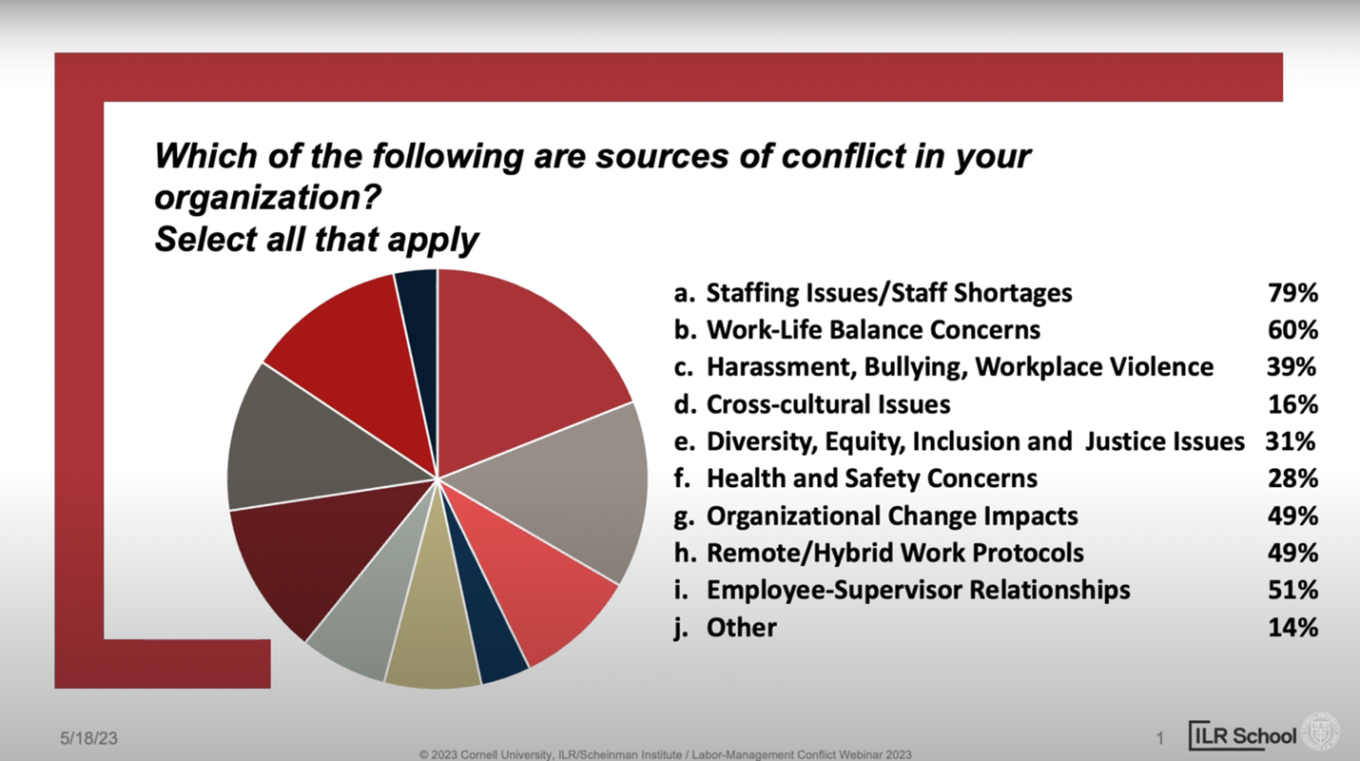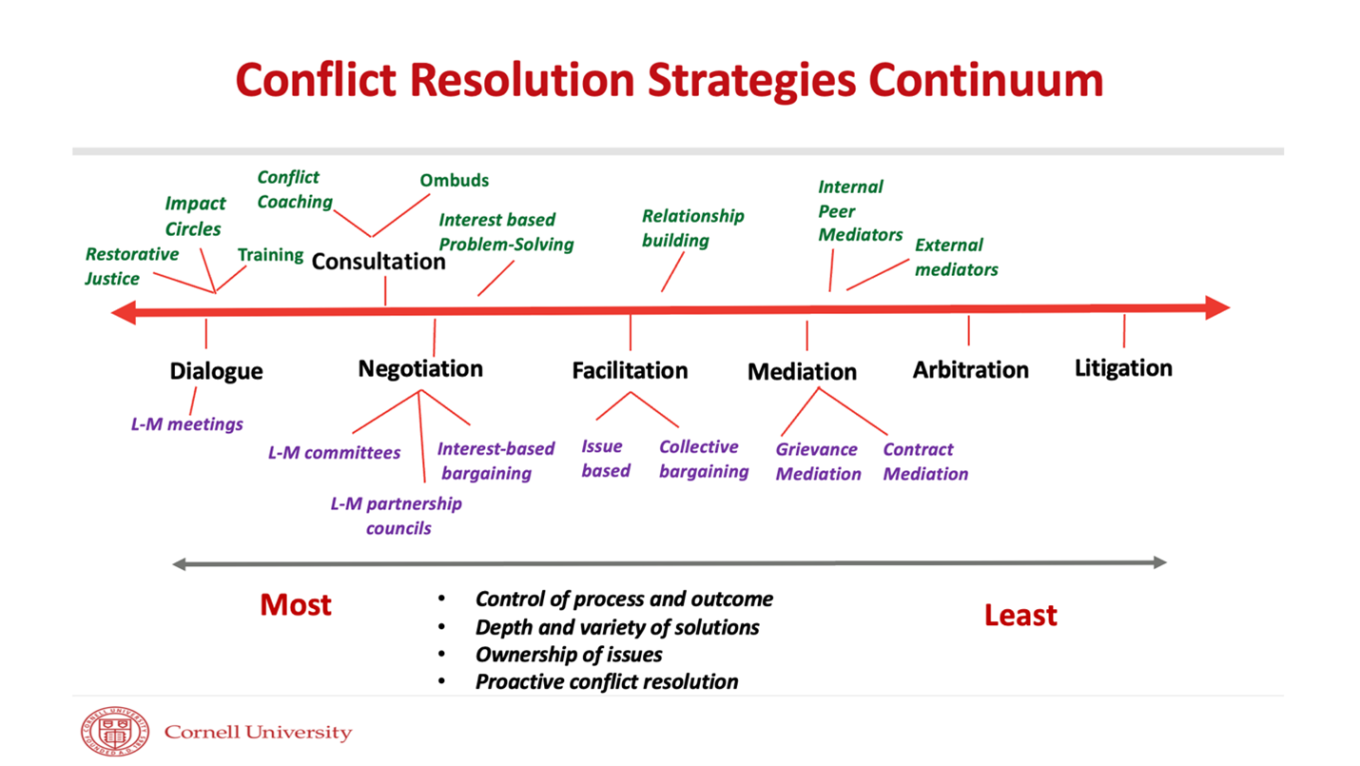
Scheinman Institute Webinar Explores the Future of Labor-Management Conflict
On May 16th, 2023, the Scheinman Institute hosted a webinar covering labor-management conflict. This event was the first in a series of events focusing on Workplace Conflict and how the parties work together to address conflict in the workplace. The discussion was an insightful conversation and drew in an audience of union and management leaders spanning the public, private, and nonprofit sectors.
Ellen Gallin Procida from the Scheinman Institute, led the conversation. The panel included notable experts in the field of labor-management issues: Rebecca Dixon, President and CEO of the National Employment Law Project, Marilyn Chow, Professor at the University of California San Francisco and the former Vice President of patient care services at Kaiser Permanente, Michael Mulgrew, President for the United Federation of Teachers, and Arbitrator/Mediator Martin Scheinman Esq., founder of the Scheinman Institute on Conflict Resolution.
The event began with a discussion of what each panelist saw as the cause and possible solutions for current workplace conflicts they are seeing in their respective roles.
Rebecca Dixon spoke about the social justice nonprofit sector, emphasizing the changes COVID-19 has brought to the workplace. Notably, she discussed that the pandemic has shifted what employees expect from their organizations and the growing demand that organizations reflect the values they preach. As for solutions, she focused on interest-based problem-solving. This collaborative process considers multiple solutions and emphasizes cooperation rather than competition.
Marilyn Chow discussed changes in the healthcare industry, exploring two fundamental factors affecting the healthcare workforce. First, she emphasized a workforce shortage of more than 1 million doctors and nurses and 3.2 million additional healthcare workers in the coming years. The second factor mentioned was employee turnover, likely due to burnout which has been exacerbated by the pandemic. Going forward, she noted the need for proactive collaboration and coming together to solve potential future issues.
Michael Mulgrew commented on educators, emphasizing the similarity of issues in the education workplace as those mentioned by other panelists including changing employee interests and labor shortages. He explored the importance of culture changes and an ultimate redesign of the school workplace. He offered the PROSE schools in New York City as an instance demonstrating collaboration between labor and management. These schools have the ability to alter functions and policies with both administrative and employee approval. PROSE schools have higher retention rates than those without the program, which demonstrate how worker voice can impact the educational workforce.
Martin Scheinman stressed that conflict is not a failure of relationships rather it is implicit to relationships. He explained that this is inherent to workplace relationships as well, especially considering the amount of time spent at work.
After the panelists had explored the cause and solutions for workplace conflicts, the webinar engaged the audience by inquiring about what kinds of workplace conflicts are most common in the attendants' experiences. Staffing issues and shortages took the top spot, followed by work-life balance concerns.

Throughout the webinar, the panelists answered many audience questions facilitated by John August of the Scheinman Institute, bringing their own insights and perspectives to the conversation.
The Scheinman Institute’s Cheryl Teare introduced the conflict resolution spectrum, which promoted great interest. She discussed expanding the continuum to emphasize informal structures and individual approaches.

Overall, panelists and participants all seemed to agree on one thing: innovation and collaboration are necessary to solve future labor-management conflicts.
The series of conversations surrounding these critical issues will continue throughout the year including an in-person symposium on November 13th, 2023 in New York City. Registration for the next phase will open soon.
